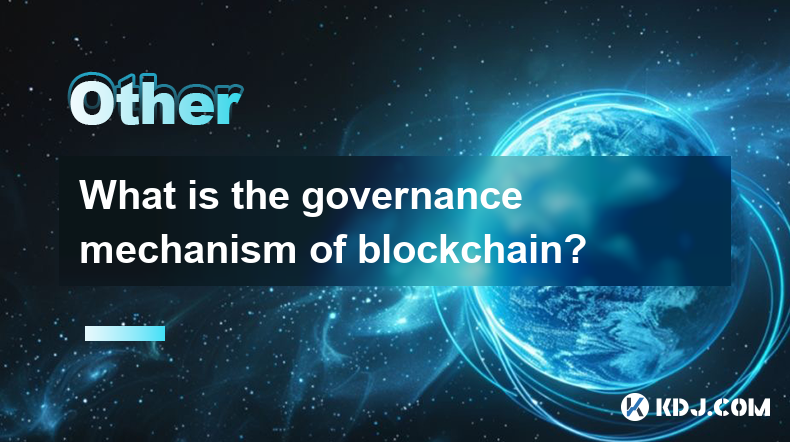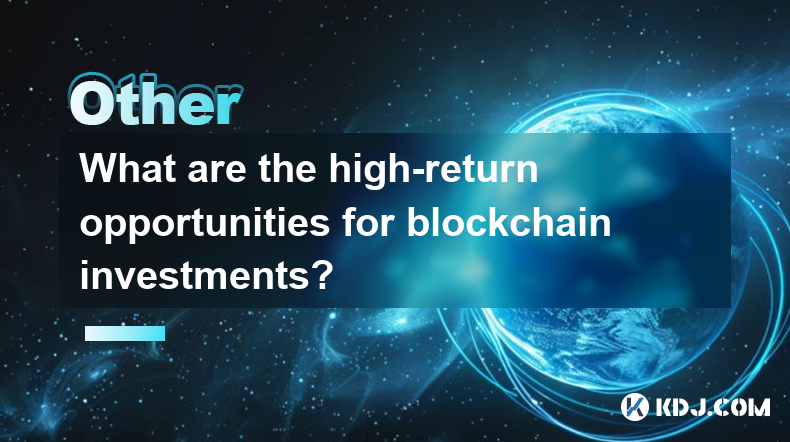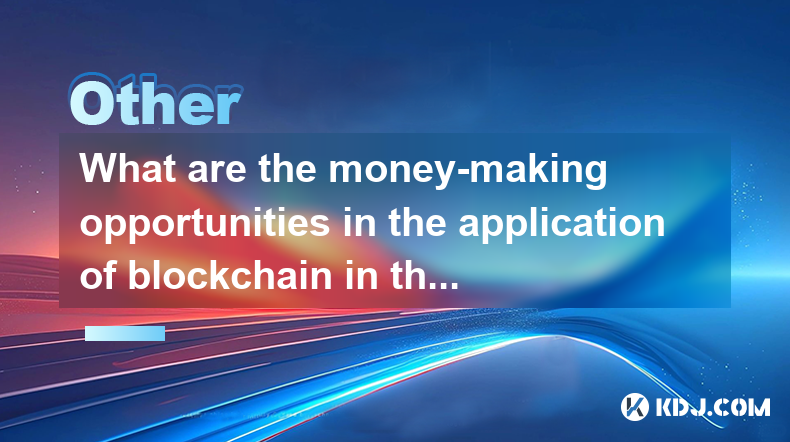-
 Bitcoin
Bitcoin $81,489.5635
-1.67% -
 Ethereum
Ethereum $1,695.4651
-5.18% -
 Tether USDt
Tether USDt $0.9995
-0.01% -
 XRP
XRP $2.0520
-3.51% -
 BNB
BNB $570.9477
-3.69% -
 USDC
USDC $0.9998
-0.01% -
 Solana
Solana $112.8204
-4.54% -
 Dogecoin
Dogecoin $0.1592
-5.32% -
 TRON
TRON $0.2383
0.43% -
 Cardano
Cardano $0.6186
-5.05% -
 UNUS SED LEO
UNUS SED LEO $8.9764
-1.16% -
 Toncoin
Toncoin $3.2746
-0.41% -
 Chainlink
Chainlink $11.9775
-5.49% -
 Stellar
Stellar $0.2502
-0.32% -
 Avalanche
Avalanche $16.9747
-5.28% -
 Shiba Inu
Shiba Inu $0.0...01172
-3.57% -
 Sui
Sui $2.0344
-8.21% -
 Hedera
Hedera $0.1516
-5.77% -
 Polkadot
Polkadot $3.8232
-2.49% -
 MANTRA
MANTRA $6.0922
-3.03% -
 Litecoin
Litecoin $76.7063
-6.65% -
 Bitcoin Cash
Bitcoin Cash $291.2979
-2.40% -
 Dai
Dai $0.9999
-0.02% -
 Ethena USDe
Ethena USDe $0.9986
-0.05% -
 Bitget Token
Bitget Token $4.2790
-3.53% -
 Pi
Pi $0.6120
-0.50% -
 Monero
Monero $203.4248
-5.68% -
 Hyperliquid
Hyperliquid $10.9016
-6.10% -
 Uniswap
Uniswap $5.4430
-6.01% -
 OKB
OKB $52.1906
1.63%
What is the governance mechanism of blockchain?
Blockchain governance, vital for network management, uses on-chain (transparent, immutable, but complex) or off-chain (flexible, but risks bias) methods, or a hybrid approach, balancing speed and security. DAOs utilize smart contracts for automated governance, but face security and participation challenges.
Feb 28, 2025 at 12:13 pm

What is the Governance Mechanism of Blockchain?
Key Points:
- Blockchain governance mechanisms are the processes and systems used to manage and update a blockchain network. They determine how changes are proposed, discussed, voted upon, and implemented. These mechanisms vary widely depending on the specific blockchain's design philosophy and goals.
- Different blockchains employ diverse governance models, ranging from centralized to fully decentralized systems. Understanding these models is crucial for evaluating a blockchain's resilience, adaptability, and overall sustainability.
- Key aspects of blockchain governance include consensus mechanisms (how blocks are added to the chain), proposal mechanisms (how changes are suggested), voting mechanisms (how decisions are made), and dispute resolution (how conflicts are handled).
- The effectiveness of a blockchain's governance is directly related to its community engagement, transparency, and security. A poorly designed governance system can lead to stagnation, conflicts, and even network failures.
Exploring Blockchain Governance Mechanisms:
- On-Chain Governance: This refers to governance processes that are directly integrated into the blockchain's code. Decisions are made through on-chain transactions and votes, ensuring transparency and immutability. However, on-chain governance can be slow and complex, requiring significant technical expertise from participants. The complexity arises from the need to design smart contracts that accurately reflect the governance rules and handle various voting scenarios, including tie-breakers, quorum requirements, and potential attacks. For instance, a proposed change might require a supermajority (e.g., 75%) of staked tokens to approve it, preventing a small group from unilaterally altering the network's rules. Furthermore, sophisticated smart contracts need to handle various edge cases and ensure the security of the entire process. The implementation needs to be thoroughly audited to prevent vulnerabilities that could be exploited to manipulate the voting process. This meticulous approach ensures the integrity and robustness of the governance system. The level of technical expertise required to participate effectively in on-chain governance can pose a barrier to entry for less technically inclined community members, potentially leading to a less inclusive decision-making process.
- Off-Chain Governance: In contrast to on-chain governance, off-chain mechanisms use external platforms or processes to manage the network. This approach can be more flexible and efficient, allowing for quicker decision-making. However, it sacrifices some of the transparency and immutability benefits of on-chain governance. Off-chain governance might involve forums, community meetings, or even a centralized authority making decisions. The risk with off-chain governance is the potential for manipulation or bias if the decision-making process isn't transparent and accountable. Establishing robust mechanisms for recording and verifying decisions is crucial to maintaining trust. The challenge lies in finding a balance between efficiency and transparency. A well-designed off-chain governance system might incorporate elements of on-chain verification to ensure that decisions made off-chain are ultimately reflected in the blockchain's state. This hybrid approach aims to combine the speed and flexibility of off-chain processes with the security and transparency of on-chain recording. Careful consideration must be given to the potential conflicts of interest that could arise in off-chain governance and mechanisms must be put in place to mitigate these risks.
- Hybrid Governance: Many blockchains adopt a hybrid approach, combining on-chain and off-chain elements. This approach seeks to leverage the strengths of both methods while mitigating their weaknesses. For example, a blockchain might use on-chain voting for critical decisions while relying on off-chain discussions and proposals for less significant changes. The design of a hybrid system requires careful consideration of which aspects of governance are best suited for on-chain or off-chain processes. The key is to clearly define the responsibilities and decision-making authority for each component of the system. A well-designed hybrid system can enhance both efficiency and transparency, but a poorly designed system could create confusion and inefficiency. The interaction between on-chain and off-chain processes must be clearly defined to avoid conflicts or inconsistencies. For example, it's crucial to specify how off-chain discussions inform on-chain proposals and how on-chain votes are integrated back into the off-chain decision-making process. A robust auditing mechanism is necessary to ensure the transparency and integrity of the entire hybrid governance process.
- DAO Governance (Decentralized Autonomous Organizations): DAOs utilize smart contracts to automate and manage governance processes. Decisions are often made through token-weighted voting, where token holders' voting power is proportional to the number of tokens they hold. This approach aims to create a truly decentralized and transparent governance system. However, DAOs can also face challenges related to participation, security vulnerabilities in smart contracts, and the potential for manipulation by large token holders. The security of the smart contracts governing a DAO is paramount. Any vulnerability in these contracts could be exploited to manipulate the voting process or steal funds. Thorough audits and security reviews are crucial to mitigating these risks. Furthermore, the design of the DAO's governance structure needs to address potential issues such as the concentration of voting power in the hands of a few large token holders. Mechanisms to prevent such concentration of power, such as token distribution limits or voting mechanisms that limit the influence of individual token holders, need to be considered. Ensuring broad participation and preventing the exclusion of smaller stakeholders is essential for a healthy and sustainable DAO. This requires thoughtful design of the communication channels and participation mechanisms.
FAQs:
Q: What are the different types of consensus mechanisms used in blockchain governance?
A: Various consensus mechanisms underpin blockchain governance, each with its strengths and weaknesses. Proof-of-Work (PoW) requires miners to solve complex computational problems to validate transactions and add blocks, making it secure but energy-intensive. Proof-of-Stake (PoS) allows validators to stake their tokens to participate in consensus, reducing energy consumption but potentially vulnerable to "stake attacks" by wealthy actors. Delegated Proof-of-Stake (DPoS) delegates voting rights to elected representatives, improving efficiency but potentially centralizing power. Other mechanisms include Practical Byzantine Fault Tolerance (PBFT), which requires a smaller number of validators but is less scalable, and various hybrid approaches combining different mechanisms. The choice of consensus mechanism significantly impacts the governance structure and its efficiency, security, and decentralization.
Q: How does tokenomics influence blockchain governance?
A: Tokenomics, the economic design of a cryptocurrency, plays a crucial role in blockchain governance. The distribution, utility, and scarcity of tokens directly influence the power dynamics within the community. Token holders often have voting rights proportional to their holdings, creating a system where those with more tokens wield greater influence. This can lead to concerns about centralization and inequality of power if token distribution is not carefully designed. Tokenomics also influences the incentives for participation in governance. Rewards for participating in governance activities, such as voting or proposing improvements, can encourage community engagement. However, poorly designed tokenomics can lead to situations where only a few wealthy individuals control the governance process, undermining the principles of decentralization. A balanced and well-designed tokenomics model is essential for fostering a healthy and participatory governance system.
Q: What are the challenges in implementing effective blockchain governance?
A: Implementing effective blockchain governance faces numerous challenges. One key challenge is achieving a balance between decentralization and efficiency. Fully decentralized systems can be slow and cumbersome, while more centralized systems risk undermining the core principles of blockchain technology. Another challenge lies in ensuring broad participation and inclusivity in the governance process. Technical barriers to entry, lack of community engagement, and unequal token distribution can exclude significant portions of the community from participating in decision-making. Security vulnerabilities in smart contracts used for governance are also a major concern, as they can be exploited to manipulate the voting process or steal funds. Finally, achieving consensus among diverse stakeholders with potentially conflicting interests can be incredibly difficult. The design of a robust and fair governance mechanism needs to address these challenges to ensure the long-term health and sustainability of the blockchain network.
Disclaimer:info@kdj.com
The information provided is not trading advice. kdj.com does not assume any responsibility for any investments made based on the information provided in this article. Cryptocurrencies are highly volatile and it is highly recommended that you invest with caution after thorough research!
If you believe that the content used on this website infringes your copyright, please contact us immediately (info@kdj.com) and we will delete it promptly.
- IntelMarkets (INTL) Could Outperform XRP (XRP) in Q2, Offering 400% Presale Gains
- 2025-04-07 01:20:12
- From Ban to Adoption: Bolivia's Cryptocurrency Policy Evolution
- 2025-04-07 01:20:12
- NEO Price Prediction: NEO May Have Bottomed Out and Be Primed for a Bullish Reversal
- 2025-04-07 01:15:12
- As Q2 of 2025 Begins, These 4 Cryptocurrencies Are Poised to Explode
- 2025-04-07 01:15:12
- Market crashes don't have to crush portfolios — UBS says staying calm, holding liquidity, and capitalizing on volatility can turn chaos into a wealth-building advantage.
- 2025-04-07 01:10:12
- Experienced Bitcoin ($BTC) market participants have recently entered a noticeable accumulation phase.
- 2025-04-07 01:10:12
Related knowledge

Is the ranking of Chinese blockchain apps real and reliable?
Apr 04,2025 at 09:01pm
The ranking of Chinese blockchain apps has become a topic of interest for many in the cryptocurrency community, as it provides insights into the popularity and adoption of blockchain technology within China. However, the reliability and authenticity of these rankings are often questioned. This article aims to delve into the factors that influence these ...

What are the future development trends of blockchain game development?
Apr 03,2025 at 05:00am
Blockchain technology has revolutionized various industries, and gaming is no exception. As we look to the future, several trends are set to shape the development of blockchain games. These trends not only promise to enhance the gaming experience but also to integrate blockchain technology more seamlessly into the gaming ecosystem. Let's explore these t...

What are the high-return opportunities for blockchain investments?
Apr 05,2025 at 02:35pm
Blockchain technology has revolutionized the financial world, offering numerous high-return investment opportunities. These opportunities span various sectors within the cryptocurrency ecosystem, including cryptocurrencies, decentralized finance (DeFi), non-fungible tokens (NFTs), and blockchain startups. Each of these areas presents unique risks and re...

What are the maintenance costs of blockchain system development?
Apr 03,2025 at 06:07pm
The maintenance costs of blockchain system development are multifaceted and depend on various factors. These costs can include technical maintenance, security updates, infrastructure expenses, and personnel costs. Understanding these elements is crucial for anyone planning to develop or maintain a blockchain system. Technical MaintenanceTechnical mainte...

What are the money-making models of blockchain games?
Apr 04,2025 at 02:00pm
Blockchain games have emerged as a revolutionary way for players to earn real money while enjoying their favorite pastime. These games leverage the power of blockchain technology to create unique money-making models that benefit both the players and the developers. In this article, we will explore the various money-making models of blockchain games and ...

What are the money-making opportunities in the application of blockchain in the field of Internet of Things?
Apr 05,2025 at 10:35pm
The integration of blockchain technology with the Internet of Things (IoT) presents numerous money-making opportunities. Blockchain, with its decentralized and secure nature, can revolutionize how IoT devices interact, manage data, and conduct transactions. This article will explore various avenues where entrepreneurs, developers, and investors can capi...

Is the ranking of Chinese blockchain apps real and reliable?
Apr 04,2025 at 09:01pm
The ranking of Chinese blockchain apps has become a topic of interest for many in the cryptocurrency community, as it provides insights into the popularity and adoption of blockchain technology within China. However, the reliability and authenticity of these rankings are often questioned. This article aims to delve into the factors that influence these ...

What are the future development trends of blockchain game development?
Apr 03,2025 at 05:00am
Blockchain technology has revolutionized various industries, and gaming is no exception. As we look to the future, several trends are set to shape the development of blockchain games. These trends not only promise to enhance the gaming experience but also to integrate blockchain technology more seamlessly into the gaming ecosystem. Let's explore these t...

What are the high-return opportunities for blockchain investments?
Apr 05,2025 at 02:35pm
Blockchain technology has revolutionized the financial world, offering numerous high-return investment opportunities. These opportunities span various sectors within the cryptocurrency ecosystem, including cryptocurrencies, decentralized finance (DeFi), non-fungible tokens (NFTs), and blockchain startups. Each of these areas presents unique risks and re...

What are the maintenance costs of blockchain system development?
Apr 03,2025 at 06:07pm
The maintenance costs of blockchain system development are multifaceted and depend on various factors. These costs can include technical maintenance, security updates, infrastructure expenses, and personnel costs. Understanding these elements is crucial for anyone planning to develop or maintain a blockchain system. Technical MaintenanceTechnical mainte...

What are the money-making models of blockchain games?
Apr 04,2025 at 02:00pm
Blockchain games have emerged as a revolutionary way for players to earn real money while enjoying their favorite pastime. These games leverage the power of blockchain technology to create unique money-making models that benefit both the players and the developers. In this article, we will explore the various money-making models of blockchain games and ...

What are the money-making opportunities in the application of blockchain in the field of Internet of Things?
Apr 05,2025 at 10:35pm
The integration of blockchain technology with the Internet of Things (IoT) presents numerous money-making opportunities. Blockchain, with its decentralized and secure nature, can revolutionize how IoT devices interact, manage data, and conduct transactions. This article will explore various avenues where entrepreneurs, developers, and investors can capi...
See all articles





















































































